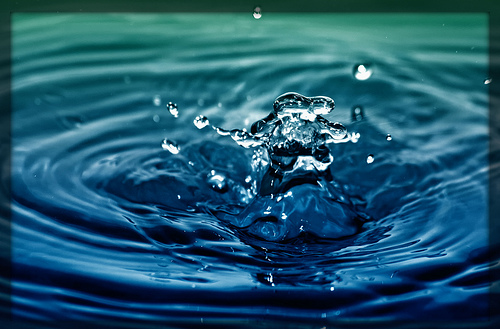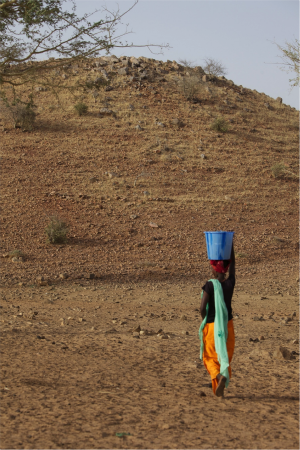by Jessi Johnson
 |
| {source: dopamineharper} |
It may seem silly right now to imagine war breaking out over a cup of water – but with decreasing access to clean water in developing countries, increased competition for resources, and 3.4 million people dying every year from water-related diseases, that cup of water suddenly has a lot more significance.
The correlations between human conflict and environmental issues are complex. Environmental factors are rarely the sole reason for conflict, but issues such as access to and availability of clean water inevitably lead to clashes or violence. Environmental degradation, poorly designed trade and aid policies, and reckless exploitation of natural resources imperil human security.
Struggles over the “earth’s most precious resource” are rising steadily in many countries, and tackling this challenge has the attention of major political forums, from the White House to the CIA, the Pentagon, USAID, UFO, and the African Union. Competition over resources such as water and energy will worsen tensions between different ethnic, cultural, and political groups of people, both within and across borders, and could escalate regional conflicts into even broader ones, especially within developing states. Water security is fast becoming one of the most important debates at any major political gathering; “A sustainable and safe supply of water is necessary to the development and security of every nation,” says Rajiv Shah, a USAID administrator.
 |
| {photo by Gil Garcetti} |
According to the U.S. State Department, a high percentage of developing countries, especially fragile states in West Africa, will experience the water shortages, poor water quality, floods, or lack of water security that lead to instability, tension, even state failure. While these problems within country are harrowing enough, water security has greater intercontinental consequences: “Water problems will hinder the ability of key countries to produce food and generate energy, posing a risk to global food markets and hobbling economic growth” (DNI, 2012).
When a country fails to supply usable water to its people, the population suffers. Healthy crops cannot grow, or they grow with the help of polluted water. These crops and the polluted water itself in turn sicken the people who are then unable to work and contribute to economic growth. Famine and an increase in water-related illnesses can result, furthering the decline in cultural and economic growth. The economic stability of the country threatens the entire infrastructure, which has a domino effect on the stability of surrounding nations, either through trade, border violence, or swelling immigrant numbers of people trying to find fresh water. Developing countries lose power on the global stage, affecting future prospects for growth. With so much increased tension, war is often not far off.
While drilling a well in West Africa may seem like a small step to some, it has a ripple effect, which touches the lives of every bordering country. Access to clean water can soothe tensions, lead to a healthy—and working—population, and stimulate economic growth. There is a crucial need to understand the links between environmental change, natural resources, and human safety in order to stave off further conflict. A glass of clean water is not something to be taken for granted; it is a key step toward improving security.


